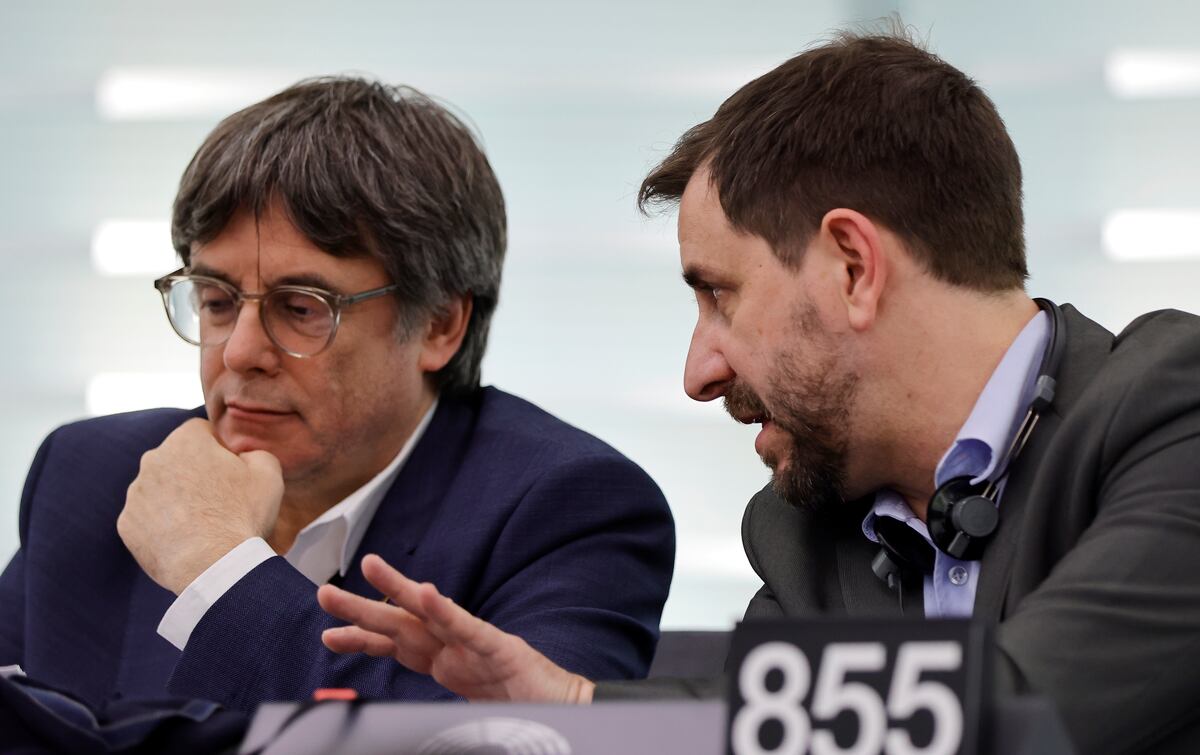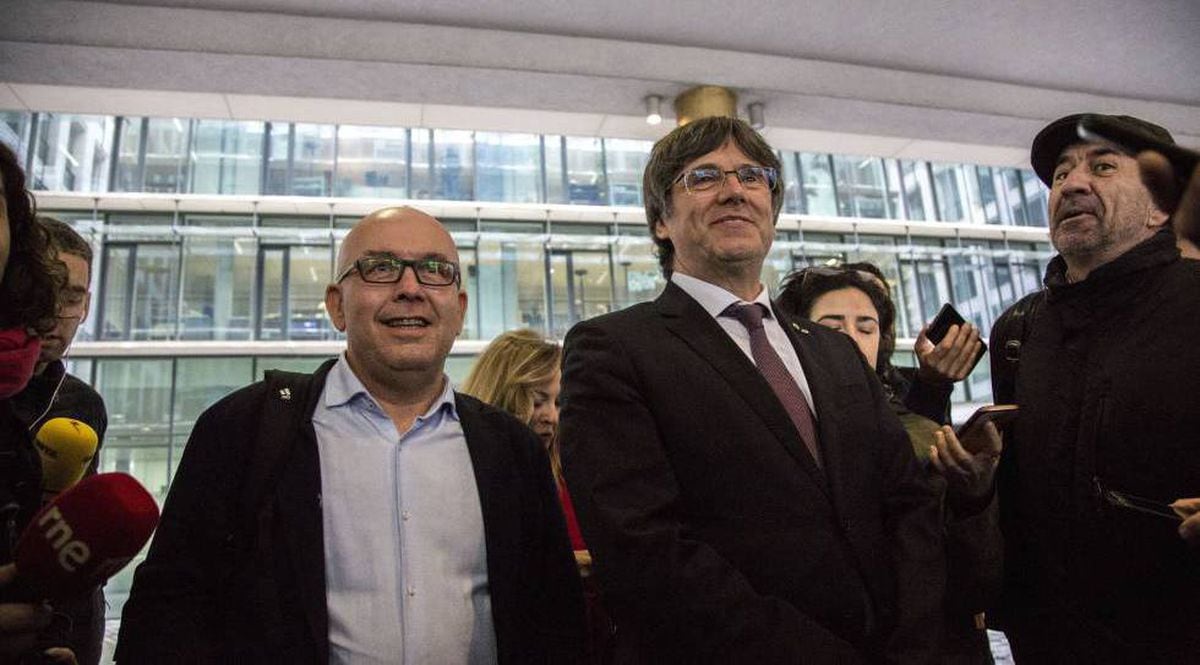The Advocate General of the EU has given Spain the reason this Thursday in the long fight that the Spanish justice maintains with Belgium for the European arrest warrants (ODE) issued against Carles Puigdemont and the former Catalan independence councilors who fled to that country since 2017. Attorney General Richard de la Tour considers that Belgium cannot question the competence of the Spanish Supreme Court to issue a Euroorder, nor can it deny the surrender of the
procés escapees
Alleging possible violation of fundamental rights if it does not first demonstrate the existence of "systemic deficiencies" in the Spanish justice system.
That is the response of the Advocate General to the questions raised by Supreme Court Justice Pablo Llarena, who considered that the interpretation of European law that Belgian justice is applying in decisions that have to do with the independence leaders differs from that contained in the framework decision that regulates European orders.
“The framework decision does not allow an executing judicial authority to control whether an issuing judicial authority is competent, under the law of the issuing Member State, to issue an EAW”, confirms the Advocate General.
Puigdemont has regretted that decision of the Attorney General, although he has assured that he expected it and that he will wait for the final resolution of the court.
“We will fight for every right and for every option.
Until the end”, she has written on Twitter.
The opinion of the Advocate General is not binding, but usually coincides with the resolutions issued later by the Court of Justice of the European Union (CJEU), which is the one who in the coming months —in autumn or the end of the year, predictably— will give the answers definitive to the questions of the Spanish magistrate.
If these are in line with what was expressed this Thursday by De la Tour, Belgium's possibilities to continue rejecting the delivery of the independence leaders will be very limited and the Supreme Court will see the doors open for the delivery of Puigdemont and the rest of the escapees.
Belgium already denied in January 2021 the delivery of former Minister Lluís Puig, and that decision set off all the alarms in the Supreme Court and precipitated the presentation of this preliminary ruling.
Although the brief was based on the reasons put forward by the Belgian justice system for not handing over Puig (prosecuted for embezzlement and disobedience), Llarena's ultimate goal was for the CJEU to set stable criteria that would restrict the options for rejecting the Euroorder for sedition. and embezzlement issued against Puigdemont and former directors Toni Comín and Clara Ponsatí (the latter only for sedition).
The CJEU, on the other hand, has yet to decide whether to definitively return Puigdemont, Comín and Ponsatí their immunity as MEPs.
Right now they have it provisionally recognized, which allows them to travel around the EU in the exercise of their position without being arrested in countries that do comply with the European arrest warrant issued against them by the Spanish justice system.
The fundamental reason that Belgium alleged to deny the handover of former Minister Puig was that the Supreme Court, in his opinion, did not have the competence to judge him, but that it should be the courts of Catalonia that did so.
Llarena asked the European court if the Belgian justice "can question the competence" of the Supreme Court in this case, and the Advocate General's response is no: no country can control whether the judge who issues a Euroorder is competent to judge that case, he maintains. From Tour.
“Authorizing such control would contravene the principle of procedural autonomy, according to which Member States can designate in their national law the competent judicial authority to issue EAWs, and the principle of mutual recognition,
By rejecting the delivery of Puig, and throughout the process of processing the European orders, the Belgian justice has also questioned whether Spain will respect the fundamental rights of the fled independence leaders.
The Advocate General warns, however, that the execution of an EAW cannot be denied when there is no data to demonstrate, "by means of a global assessment based on objective, reliable, precise and duly updated data", the existence of a real risk of violation of the fundamental right to a fair trial.
To do this, Belgium should prove that Spain suffers from "systemic or generalized deficiencies in the functioning of the judicial system", points out De la Tour, who recalls that, when there are no such deficiencies, it is not possible for the executing judicial authority (Belgium,
a priori
that risk of violation of rights.
The Advocate General emphasizes that entering into a process of "in-depth verification" of the existence of a hypothetical risk of violation of the fundamental right to a fair trial when there are no systemic or generalized deficiencies in the functioning of the judicial system of the issuing State (in this case, Spain) “would be nothing more than the expression of mistrust towards the courts of that Member State, contrary to the principles of trust and mutual recognition between Member States established by the Framework Decision”.
No limit to European orders
Llarena also wanted to know whether or not she could send a euroorder against Puig to Belgium again, once the justice of that country had rejected the previous one.
The thesis of the Advocate General is also favorable to that option when the first one has been resolved “in contravention of Union law”.
“The objective of fighting against impunity effectively advocates for the possibility of several EAWs being issued against the same person addressed to the same executing judicial authority for the purpose of criminally prosecuting them or executing the sentence that has been imposed,” concludes de la Tour,
The CJEU has issued a sentence that Thursday, in a different case, which goes along a similar line to that argued by the lawyer De la Tour.
This is a case in which a French court refused to comply with an Italian euroorder and took refuge in the fact that the crime for which the order was issued did not exist exactly like that in the French legal system.
The CJEU ruled that in order to comply with a Euroorder, it is not required that the infractions be identical in the legislation of the issuing country and the executing country.

/cloudfront-eu-central-1.images.arcpublishing.com/prisa/V7MDCROFUVFUFH3GLR3CBV5AW4.jpg)





/cloudfront-eu-central-1.images.arcpublishing.com/prisa/YFOE7FF5EFC7NP5O2DLUMEU6EI.jpg)

